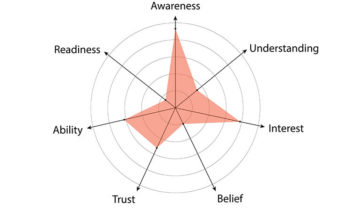Why We Wrote “How Clients Buy”
The Problem
You have to demonstrate you can “make it rain” In order to become a partner in an expert services firm. You must prove your capabilities to develop new business. However, you probably were never trained how to sell.
In part, that’s because providers of professional services tend to have an adverse reaction to selling. Their instinct is to view selling as manipulative and coercive. Selling in the mold of a used car salesman contradicts strongly held values of trustworthiness and stewardship.
This antipathy is reflected in the absence of sales from business schools’ curricula. While some of us benefit from effective mentorship, many of us are left to our own devices.
The Opportunity
According to Doug, “There are almost six million Americans today who are practicing some profession or some type of consulting.” Furthermore, participation in consulting professions is “growing at five times the rate of the overall economy.” Not only is demand for professional services growing, competition is becoming more intense. Consequently, the need to learn how to develop your practice is more pronounced than ever.
A Different Approach
Notwithstanding the explosion of business-related books over the last several years, there is a relative paucity of books devoted to selling professional services. Most of the sales books that have been published tend to emphasize “things we can do to become more persuasive,” says Doug. He goes on to explain how he and Tom took a different tack, “We turned the camera from ourselves onto the client…Rather than [ask] how do I sell, [we asked] how does a client buy?”
In Tom and Doug’s view, a seller-centric approach to business development that emphasizes persuasion and manipulation is, indeed, counter-productive. It undermines the trust that is essential for long-lived, productive relationships. By focusing on the client and their buying journey, you can help them make good decisions and, in the process, cultivate the conditions necessary to earn their business.




